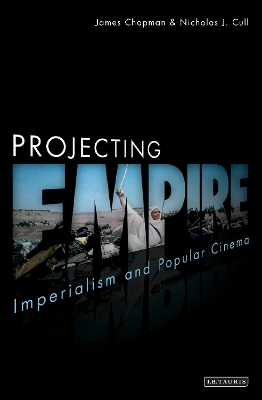Cinema and Society
4 total works
Cinema and science fiction were made for each other. The science fiction genre has produced some of the most extraordinary films ever made, yet science fiction cinema is about more than just special effects. It has also provided a vehicle for filmmakers and writers to comment on their own societies and cultures. This new exploration of the genre examines landmark science fiction films from the 1930s to the present. They include genre classics such as "Things to Come", "Forbidden Planet" and "2001: A Space Odyssey" alongside modern blockbusters "Star Wars" and "Avatar". Chapman and Cull consider both screen originals and adaptations of the work of major science fiction authors. They also range widely across the genre from pulp adventure and space opera to political allegory and speculative documentary - there is even a science fiction musical. Informed throughout by extensive research in US and British archives, the book documents the production histories of each film to show how they made their way to the screen - and why they turned out the way they did.
Past and Present: National Identity and the British Historical Film
by Professor James Chapman
Published 1 January 2005
Popular cinema is saturated with images and narratives of empire. With "Projecting Empire", Chapman and Cull have written the first major study of imperialism and cinema for over thirty years. This welcome text maps the history of empire cinema in both Hollywood and Britain through a serious of case studies of popular films including biopics, adventures, literary adaptations, melodramas, comedies and documentaries, from the 1930s and "The Four Feathers" to the present, with "Indiana Jones" and "Three Kings". The authors consider industry-wide trends and place the films in their wider cultural and historical contexts. Using primary sources that include private papers, they look at the presence of particular auteurs in the cinema of Imperialism, including Korda, Lean, Huston and Attenborough, as well as the actors who brought the stories to life, such as Elizabeth Taylor and George Clooney. At a time when imperialism has a new significance in the world, this book will fulfil the needs of students and interested filmgoers alike.
This ground-breaking book takes as its focal point director Ken Loach's view that 'The only reason to make films that are a reflection on history is to talk about the present.' In the first book to take on this major genre in all its complexity, James Chapman argues that historical films say as much about the times in which they are made as about the past they purport to portray. Through in-depth case studies of fourteen key films spanning the 1930s up to the turn of the twenty first century, from The Private Life of Henry VIII and Zulu to Chariots of Fire and Elizabeth, Chapman examines the place of historical films in British cinema history and film culture. Looking closely at the issues that they present, from gender, class and ethnicity to militarism and imperialism, he also discusses controversies over historical accuracy, and the ways in which devices such as voice overs, title captions, and visual references to photographs and paintings assert a sense of historical verisimilitude.
Exploring throughout the book the dialectical relationship between past and present, Chapman reveals how such films promote British achievements - but also sometimes question them - and how they project images of 'Britishness' to audiences both in the UK and internationally.
Exploring throughout the book the dialectical relationship between past and present, Chapman reveals how such films promote British achievements - but also sometimes question them - and how they project images of 'Britishness' to audiences both in the UK and internationally.



